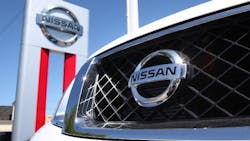Weak Supplier Relations Costing Big 3 Automakers, Nissan Billions: Survey
Ford, General Motors, FCA, and Nissan’s weak supplier relations cost them $2 billion in sales in 2014, according to an economic survey that measures automakers’ supplier relations and how they impact profits. Toyota and Honda ranked far better in their relationships with their suppliers.
The results come from the latest North American Automotive—Tier 1 Supplier Working Relations Index (WRI) Study, which this year consisted of survey responses from 541 salespeople from 435 top automotive suppliers. The company-supplier relations advisory firm Planning Perspective Inc. (PPI) conducts the survey, using an industry-approved proprietary economic model to translate the WRI into dollar values.
John Henke, president of PPI, called the results for the Big Three U.S. automakers “disappointing.”
“I know they have been working hard to—and certainly the top management wanted to—improve relations, but that did not come to fruition.” He said that top management understood the need to improve supplier relations, but had not yet been able to change the behavior of their purchasing agents, “who are dealing with the suppliers on a daily basis. GM, for example, has got 600 buyers, so it’s an enormous challenge.”
Toyota and Honda improved their WRI ranking by a combined average of 8.7% over last year. They ranked 1 and 2 for the fifth straight year. Actually, there hasn’t been an upset since the study began in 2002: Toyota has ranked first every year expect 2009 and 2010, when Honda was first.
Ford ranked third, declining 2% in its ranking over 2013 yet still overtaking Nissan, which slipped 10.6%.
Henke said that Nissan fell so sharply that he went back and checked the data to make sure their survey respondents hadn’t dramatically changed from the two previous years.
“The only thing we can attribute [Nissan’s decline] to is in the pressure to get costs down; they were being much more adversarial than they had been,” said Henke
Henke says the survey found a 50 percent increase in Nissan and GM suppliers “telling us the reason they gave the price concessions they did was because they feared retaliation” in the form of lost business.
The buyers “are not coming in and saying, ‘Hey, we’ve got to work together to get costs down,’” said Henke. “They’re saying, ‘You’ve got to give me a lower price. I don’t care if you have to cut your profit margin—that’s not my problem.’”
Buyers at the Big Three and Nissan, said Henke, lack performance incentives to treat suppliers with more respect. “They’re not being told ‘if you don’t improve you’re supplier relations, you’re not going to get a raise.’”
The incentives and measurements have to come from the human resources side, not the buying side. “That’s going to take some time,” said Henke. “It isn’t like in a small organization where everybody says, ‘OK, we can do this. You have to make sure the proper procedures are in place, or who knows who’s going to be sued for what.”
Significantly, says Henke, Honda last year “went back and put their 600 purchasing people back through some of the very basic training with regard to Honda philosophy,” Henke said. “They knew they had to get back and instill in these people the Honda way of doing business—the respect for the individual.”
Toyota and Honda regained some ground they’d lost beginning with the 2008 recession and then the 2012 tsunami, “which really hit Toyota. And then in spring and fall of 2010, Indonesian floods,” which hit the electronic supplier manufacturing facilities for both companies.
“Toyota also had its recall issue, which got global attention,” said Henke. “They were buffeted with so many externalities that they forgot about the way they had done business. Now they’re back to normal and the pressure’s off, they can say, ‘We’d better get back to doing things the way we should because it’s costing us.’”
About the Author

Laura Putre
Senior Editor, IndustryWeek
As senior editor, Laura Putre works with IndustryWeek's editorial contributors and reports on leadership and the automotive industry as they relate to manufacturing. She joined IndustryWeek in 2015 as a staff writer covering workforce issues.
Prior to IndustryWeek, Laura reported on the healthcare industry and covered local news. She was the editor of the Chicago Journal and a staff writer for Cleveland Scene. Her national bylines include The Guardian, Slate, Pacific-Standard and The Root.
Laura was a National Press Foundation fellow in 2022.
Got a story idea? Reach out to Laura at [email protected]
